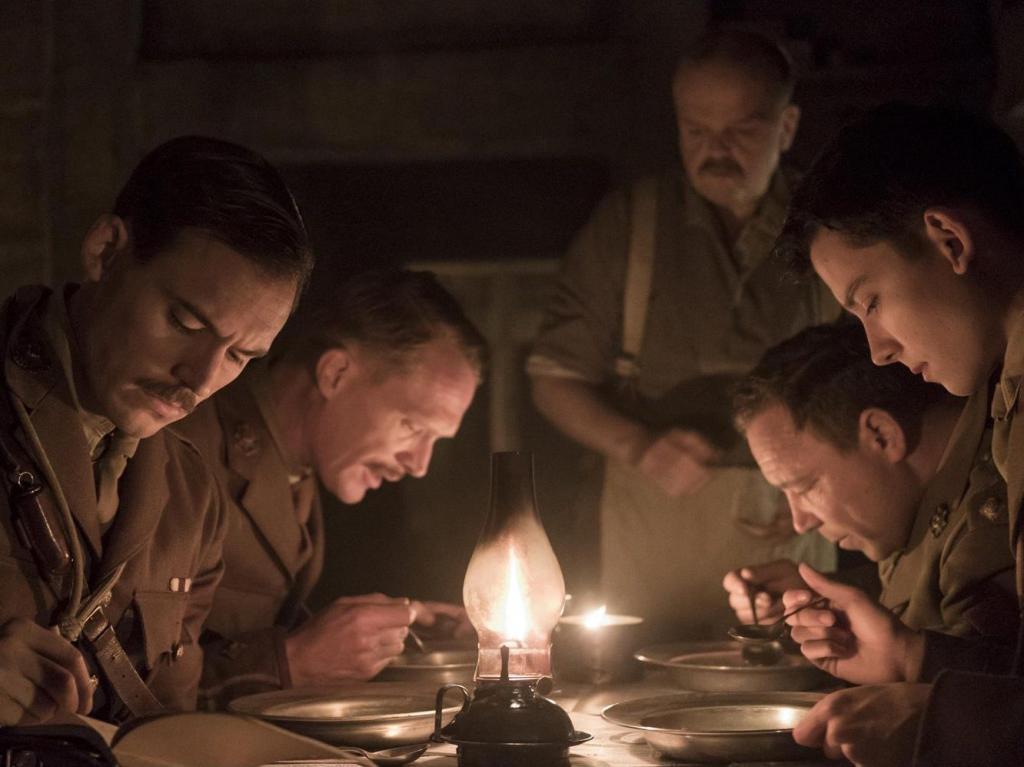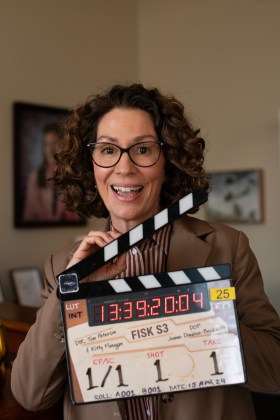Journey End.
The air is thick with despair in First World War drama Journey’s End. The atmosphere teems with bullets by night, eerie calm by day and mud no matter what the time, but it’s deep-seeded anguish that characterises life at the front in March 1918. With his brow often furrowed and whiskey rarely far from his lips, Captain Stanhope (Sam Claflin, Adrift) oozes the pervading mood. His second-in-charge, Lieutenant Osborne (Paul Bettany, Solo: A Star Wars Story), is more pragmatic –and their resident cook, Private Mason (Toby Jones, Jurassic World: Fallen Kingdom), is as well. Second Lieutenant Trotter (Stephen Graham, Yardie) gets on with the task at hand, while his equal-ranked counterpart, Hibbert (Tom Sturridge, Mary Shelley), can barely function as he ponders the futility of it all.
Into this maelstrom of conflict arrives fresh recruit Second Lieutenant Raleigh (Asa Butterfield, The Space Between Us). Straight out of his studies and sporting a patriotic twinkle in his eye, he’s as keen and eager as a soldier comes, particularly this late in the war. Specifically requesting to be dispatched to the front lines in order to serve with his school pal Stanhope, he believes that he’s making a difference. With the unit bunking in for their stint in the trenches just as a big German offensive is rumoured to hit, and with the top brass adamant that they hold their ground, the young newcomer’s certainty fades with each passing day.
Adapted by director Saul Dibb (Suite Francaise) and screenwriter Simon Reade (Private Peaceful) from Vernon Bartlett and R.C. Sherriff’s 1930 novel of the latter’s 1928 play, Journey’s End is a sober, grim and powerful war story. Combat is hell, the movie posits, in what’s far from a novel notion, but there’s no chest-beating cheerleading about the importance of duty here. Instead, the film plunges into the daily reality of life when death is just a sniper’s shot, grenades blast or failed mission away, as well as the toll that it has on those living with such mental and emotional weight.
Cue quiet observation over rousing recreations, and spending time with these struggling military men over seeing them in the thick of the fray. Many of Journey’s End’s most meaningful moments stem from watching its characters grapple with their plight, often over scrounged-up meals and loaded conversations within their dugout barracks. Cinematographer Laurie Rose (The Escape) plasters intimate, almost claustrophobic images across the screen – visuals that get viewers close to Stanhope, Raleigh and company, while honing in on their oppressive surroundings and the routines they cling to as a way of retaining some sense of normalcy. And yet, Journey’s End feels personal rather than stagey, although the film’s talk-driven nature denotes its origins. It’s easy to see how the same scenes would work in a theatre, but it’s equally easy to understand why the material has been frequently translated to cinema and television, including in the final season of comedy Blackadder.
Dibb’s filmic iteration owes much to its cast, from the resigned acceptance of Bettany to the jovial interludes of Jones. As Raleigh, Butterfield initially bounces with schoolboy exuberance, then offers the kind of vulnerability that can only spring from fading naivety, all as his character requires. It’s Claflin, however, who carries Journey’s End home, in his second military role in the space of a year and his second galvanising performance. Unlike in The Nightingale, the edges in his steely portrayal are forged from pain rather than power, resulting in a potent, empathetic performance. Claflin may be channelling horrors from a century prior, in a work first penned 90 years ago, but every second he’s on screen seethes with immediacy.
3 ½ stars ★★★☆
Journey’s End
Director: Saul Dibb
UK, 2017, 107 mins
Release date: November 8
Distributor: Icon
Rated: M
Actors:
Director:
Format:
Country:
Release:





